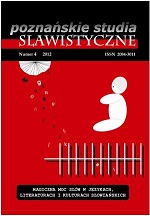Neoliberalizm w Europie Środkowej – magia, religia czy nauka?
Neoliberalism in Central Europe: Is It Magic, Religion or Science?
Author(s): Michal BuchowskiSubject(s): Social Sciences
Published by: Uniwersytet Adama Mickiewicza
Keywords: neoliberalism; communism; magic; religion; science
Summary/Abstract: Expansion of capitalism to former communist countries was presented, especially by many intellectuals, as a scientific endeavor based on rational choice theory, management techniques and precisely measured market forces. For many practitioners of ‘transformation’ the neo-liberal project became also similar to proselytizing religion that has to be spread among infidels, i.e. communism-ridden populations. In the process of applying supposedly scientific principles for missionary purposes, many mechanisms identified by anthropologists as magic were used. The same modes of thinking apply to the explanations of reform failures. In magical thinking symbols are treated as signs; in a supposedly cause-and-effect chain of events a symbolic element is instantiated and the status of this symbol is perceived as equivalent to the empirical constituents. Symbolic factors, distinguished as such in an analytical process, have the same power of affecting reality as the physically perceptible factors. Communism was often blamed for using magical tricks, particularly in the domain of magical power of words. Words, through their symbolic power, were supposed to excuse for failures in practical domains. In the notions describing advantages and shortcomings of the neoliberal system such unspecified elements can also be identified. In conclusion one can say that neo-liberalism is a science, but only for its believers who in their reasoning apply magical modes of thinking.
Journal: Poznańskie Studia Slawistyczne
- Issue Year: 2013
- Issue No: 04
- Page Range: 29-41
- Page Count: 14
- Language: Polish

